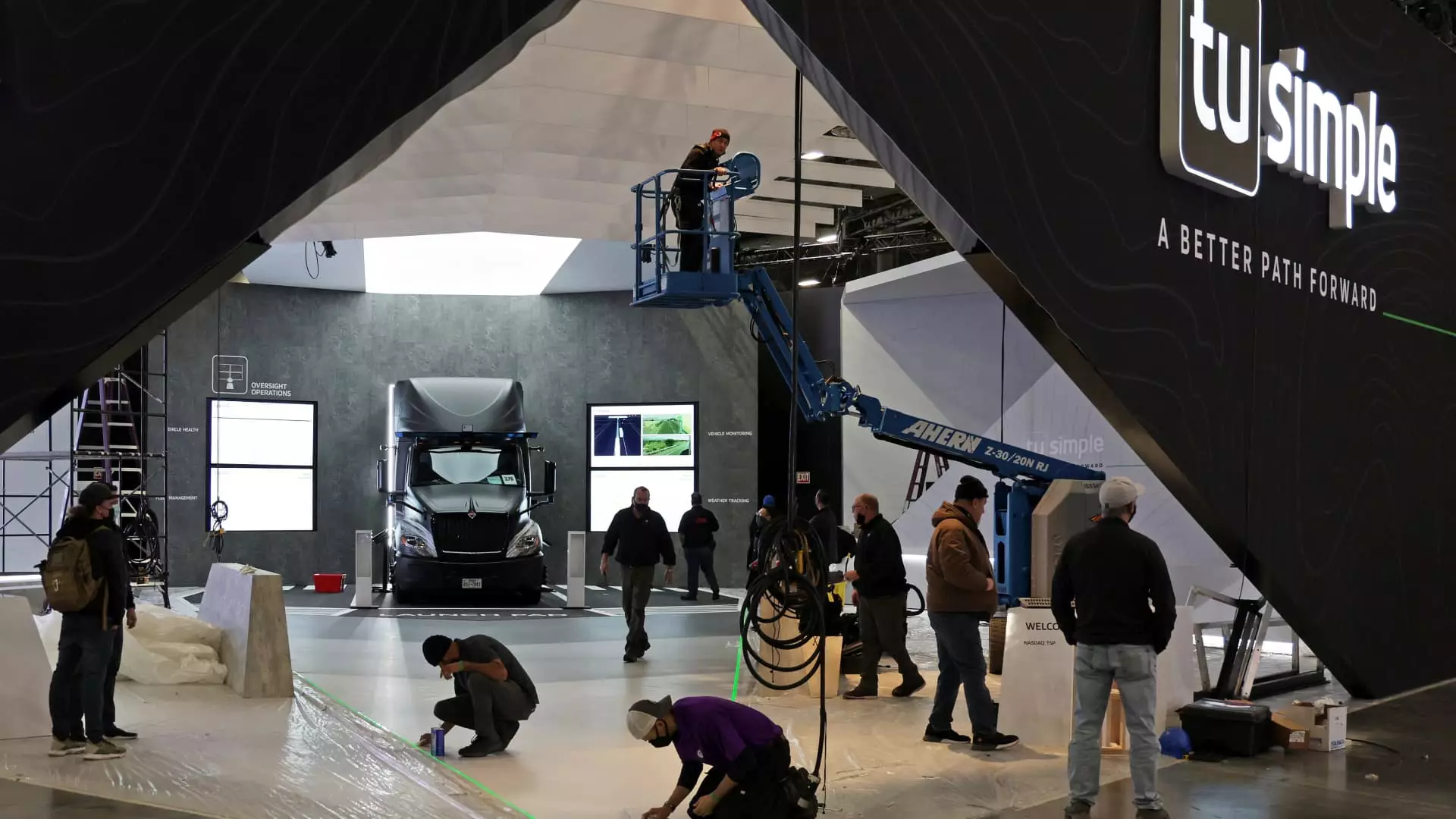As the winds of change sweep through the landscape of technology, companies are often forced to adapt or face extinction. One such company is the erstwhile autonomous trucking firm TuSimple, which recently underwent a rebranding to become CreateAI. This strategic pivot toward the realms of video games and animation comes at a time when many self-driving startups are struggling to survive, caught in a web of safety concerns, financial difficulties, and regulatory hurdles. The question is whether this rebranding and new focus will provide the necessary momentum to restore the company’s viability and relevance in a fast-evolving tech ecosystem.
TuSimple, which once straddled markets in the United States and China, faced considerable challenges that contributed to its need for transformation. Notably, the company was embroiled in a significant securities fraud lawsuit that culminated in a $189 million settlement, alongside its delisting from the Nasdaq in February. These financial burdens were compounded by mounting concerns over the safety of its autonomous vehicle technology—an issue that not only tainted the company’s reputation but also curtailed investor confidence.
In a bid to navigate these tumultuous waters, Cheng Lu, the company’s CEO, rejoined TuSimple after being ousted, signaling a strong intent to lead the company toward stability and profitability. The management’s bullish forecast of reaching a breaking-even point by 2026 hinges on the successful launch of a video game based on the popular martial arts novels by Jin Yong. If achieved, a projected revenue of “several hundred million” in 2027 could reinvigorate the company’s financial standing.
With its shift to CreateAI, the company aims to leverage its existing technology in autonomous driving to pivot toward generative AI applications, a technological trend that has taken the world by storm. The introduction of Ruyi, an open-source model for visual work, marks an ambitious step into this new frontier. In the rapidly expanding AI marketplace, the capability of creating human-like content through generative AI can open up lucrative opportunities, especially in industries like gaming and animation.
Cheng’s emphasis on shareholder support for this transformation speaks volumes about strategic alignment at the managerial level. The annual shareholders meeting will serve as a platform to solidify this newfound vision and ensure that investors are onboard with the company’s targeted trajectory. However, while the excitement of this strategic pivot suggests optimism, it raises critical questions about execution, competition, and market acceptance.
CreateAI’s collaboration with Shanghai Three Body Animation to develop a feature film and video game based on the acclaimed sci-fi series “The Three-Body Problem” exemplifies its commitment to creating unique intellectual property (IP). By harnessing rich narrative and artistic potential, the company aspires to carve a niche in a crowded market that often sidelines emerging players. An ambitious goal to reduce the costs of producing AAA games by 70% over five to six years highlights the organization’s innovative spirit and determination to stay competitive in the industry that historically has high production costs.
Moreover, the rapid expansion of the workforce—from 300 to an estimated 500 employees—suggests that CreateAI is serious about scaling its operations to meet its objectives. The implications of such growth go beyond mere numbers; it indicates a cultural shift aimed at embedding creativity and innovation throughout the company’s DNA.
Despite domestic challenges, Cheng remains optimistic about CreateAI’s trajectory, asserting that U.S. restrictions on Chinese tech firms have not posed significant issues for the company. This assertion comes amid heightened scrutiny under the Biden administration, aimed at curtailing access to advanced semiconductors necessary for generative AI technologies. The ability to navigate these regulatory landscapes effectively will be paramount for the company to sustain its momentum and realize its ambitions.
CreateAI’s dynamic shift underscores the precarious nature of the tech industry, where adaptability can dictate survival. While the rebranding and new focus are promising, the journey ahead will inevitably test the company’s resolve, innovative capacity, and strategic foresight. As CreateAI embraces its new identity, all eyes will be on its ability to deliver on its ambitious promises in an increasingly competitive and regulated environment. Only time will tell if this bold pivot can steer the company toward a new era of growth and relevance.

